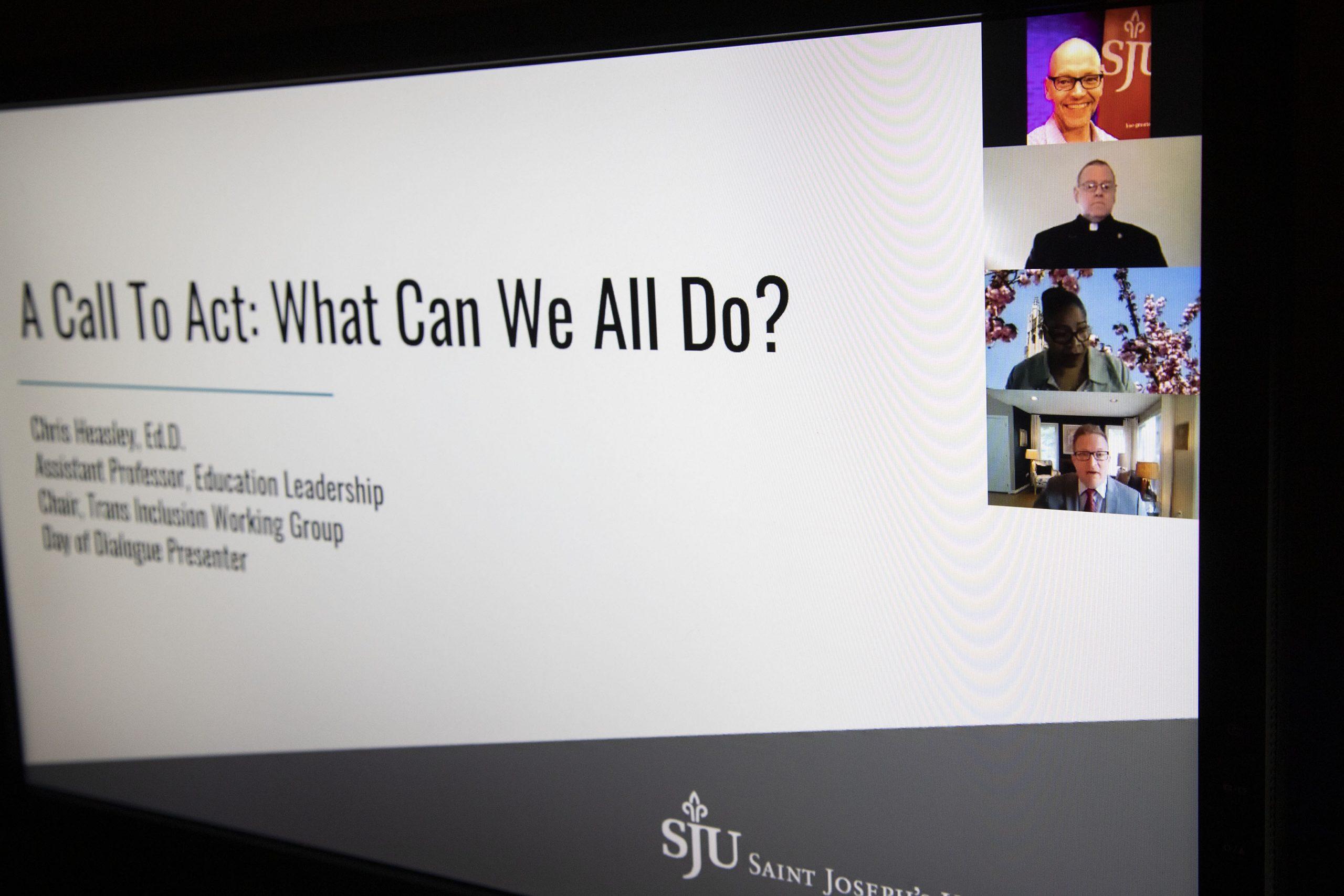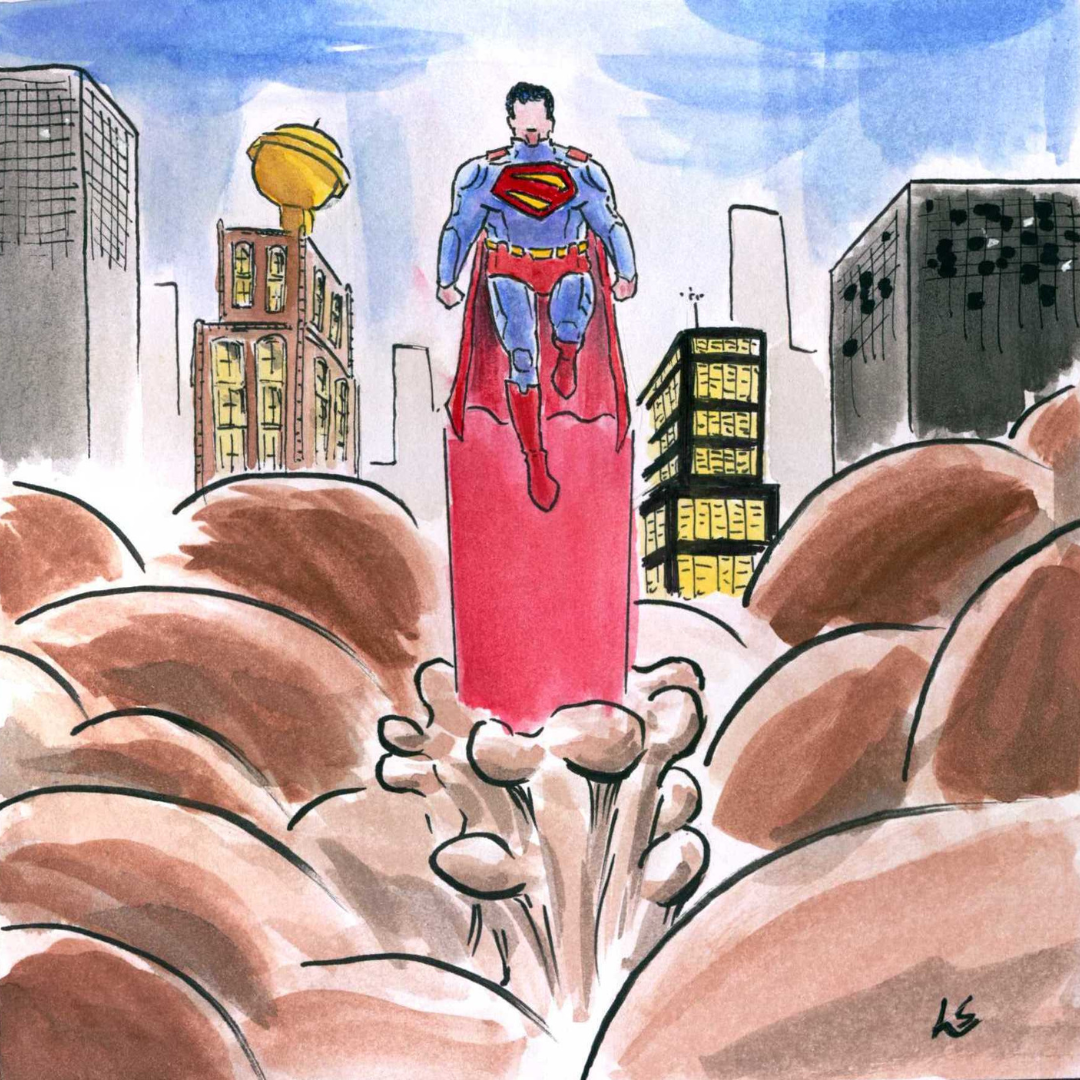30 Mindful Minutes: A Prayerful Call to Action, held on June 3, was a virtual discussion for faculty, staff and students in response to the Black Lives Matter (BLM) protests and the death of George Floyd.
The event consisted of three sections: a reflection, a call to action and a call to prayer on the university’s commitment to diversity, equity and inclusion.
Nicole R. Stokes, Ph.D., associate provost for diversity, equity and inclusion, ran the first portion of the session. She discussed the need for members of the St. Joe’s community to have difficult conversations about racism and racial inequalities.
“For this particular event, the focus was more around what people could do, because I think people had overwhelming feelings about watching these things on the news,” Stokes said. “A lot of people don’t feel like they have a direct power or agency to make changes, so we wanted to give people those options.”
Stokes said the purpose of this session was to give people concrete ways to take action through critical thinking and by creating equitable spaces on campus.
“[Students] can’t change structural inequality as an individual,” Stokes said. “What they can do is educate themselves and challenge people in their immediate circles to do better.”
The second part of the session was led by Chris Heasley, Ph.D., assistant professor of educational leadership. Heasley said it is important that classroom materials are written by a diverse array of scholars and that professors include different teaching and learning perspectives in their classrooms.
“For faculty, we discussed ensuring that they have a syllabus statement of inclusive learning which ensures creating an atmosphere of respect–a safe space where we can openly hear one’s opinion and be able to give it some reflective thought before acting on it,” Heasley said.
Heasley listed resources such as the Mazzoni Center, located in downtown Philadelphia, which focuses on gender identity and the intersectionality of race and gender, and the American Public Health Association, which is offering free resources on anti-racism.
Healsey said it was important to create a space where community members can make mistakes and receive constructive criticism from colleagues, peers, parents and mentors.
“That space is where we are going to learn and grow, but instead of being defensive, we have to be able to say ‘I am sorry,’” Healsey said. “We have to be able to offer an apology and be thankful for the learning experience and committing to do better next time.”
The last part of the session was a call to prayer, led by Daniel Joyce, S.J., executive director of the Office of Mission Programs. Joyce spoke about being open-minded towards a more diverse and inclusive environment through prayer and solidarity.
In an email to The Hawk, Joyce said his task is to offer prayer based on the experiences of others. Joyce said he used the wisdom of four people in his prayer: James Baldwin, Dr. Martin Luther King Jr., George Floyd’s partner Courtney Ross and Patrick Saint-Jean, a young Jesuit who wrote about Floyd’s death.
“Everyone needs to seriously assess their contribution and make the choice that is best for them,” Joyce said. “We each have our gifts and hold our own social space in this society, so we need to brutally and bravely choose where and how we can make lasting change to undo the pervasive systems of white privilege that harm us all.”
Stokes said she hopes starting this fall, faculty, staff and students learn from this call to action and use these lessons on campus. Stokes said that St. Joe’s is in a unique position as a university that straddles both the city of Philadelphia and a very affluent suburb.
“I think we should lean into that, talk about how these things play out in our immediate community of the city of Philadelphia and our immediate community of Lower Merion,” Stokes said. “Our campus can be leaders in that conversation about how to address these things, starting at the microlevel where our campus visibly sits.”














































